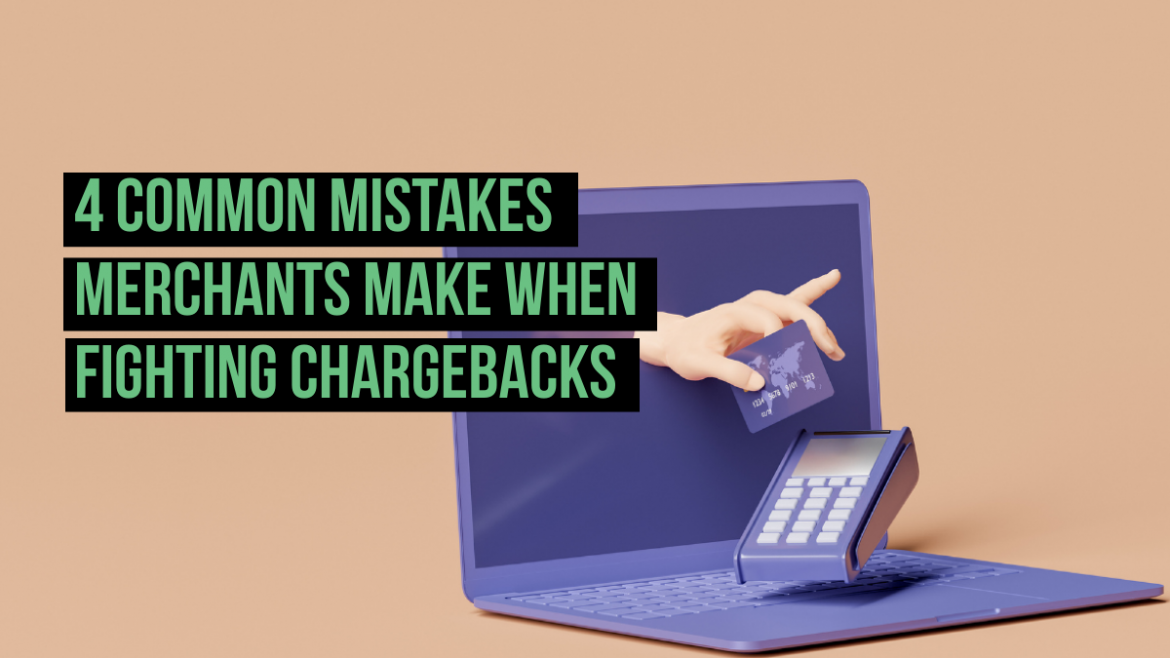Being a merchant comes with many challenges, but chargebacks are a particularly complex and disruptive one. Chargebacks come in three main types:
• Friendly fraud chargebacks: These occur when a cardholder makes a purchase, then files a chargeback claiming they didn’t initiate the transaction
• True fraud chargebacks: These occur when a stolen account or card is used to buy services or products without the cardholder’s permission, forcing the cardholder to file a charge
• Merchant error chargebacks: These are legitimate claims stemming from merchant-related issues such as poor customer service, technical errors, and so on
If you feel the reason for a specific chargeback is invalid, you can fight back. That said, you need to be careful about how you do it, as the chargeback dispute process rarely favors merchants. Here are four common mistakes you should avoid.
1. Ignoring Red Flags
Merchants can learn a lot from tracking each chargeback dispute from beginning to end. By looking at this data, you can identify what went wrong. For instance, if most chargeback reasons point to elevated fraud, you may want to look into your fraud prevention measures. The more you know about patterns like that, the easier it will be to develop the right strategy.
Which red flags do you need to look out for? That depends on the type of your business, but these four data points should give you a solid head start:
• Reasons for disputes and chargebacks
• Percentage of fraud-related chargebacks
• Common cardholders or issuing banks initiating chargebacks
• Reasons for unsuccessful representment (also known as reversal denial)
2. Not Communicating With Customers
One of the best ways to mitigate chargebacks is to clearly communicate your refund policies and have easily accessible information on your site. Similarly, having a strong customer service team that deals with payment errors on time is essential for tackling many customer concerns before they turn into chargebacks.
If you do end up facing a chargeback, communication can still help you resolve it. Start a dialogue with the customer to find out their reasoning and what you can do about it.
3. Not Understanding Reason Codes
Fighting chargebacks requires a strong knowledge of chargeback reason codes. This code classifies chargebacks by type, reason of dispute, and the evidence needed to dispute a chargeback. Other than being essential for preparing a chargeback dispute case, being familiar with chargeback reason codes can help you win your disputes more quickly.
Keep in mind that chargeback reason codes may vary by the card network. For instance, Visa has recently increased the allowable evidence for airline and digital goods merchants.
4. Wasting Time
As important as it is to fight chargebacks, you should still be cautious of spending too much time on them. To that end, the first thing you should do is check whether the acquiring bank has already initiated the automatic representment process. If they have, they’ll likely handle everything on your behalf.
To figure out which chargebacks will get addressed by acquirers, familiarize yourself with the representment guidelines.

